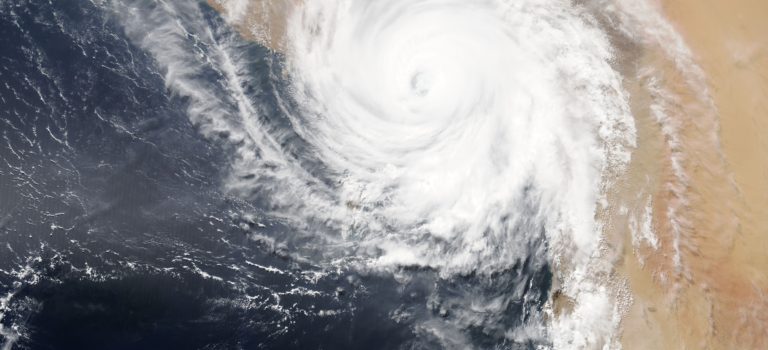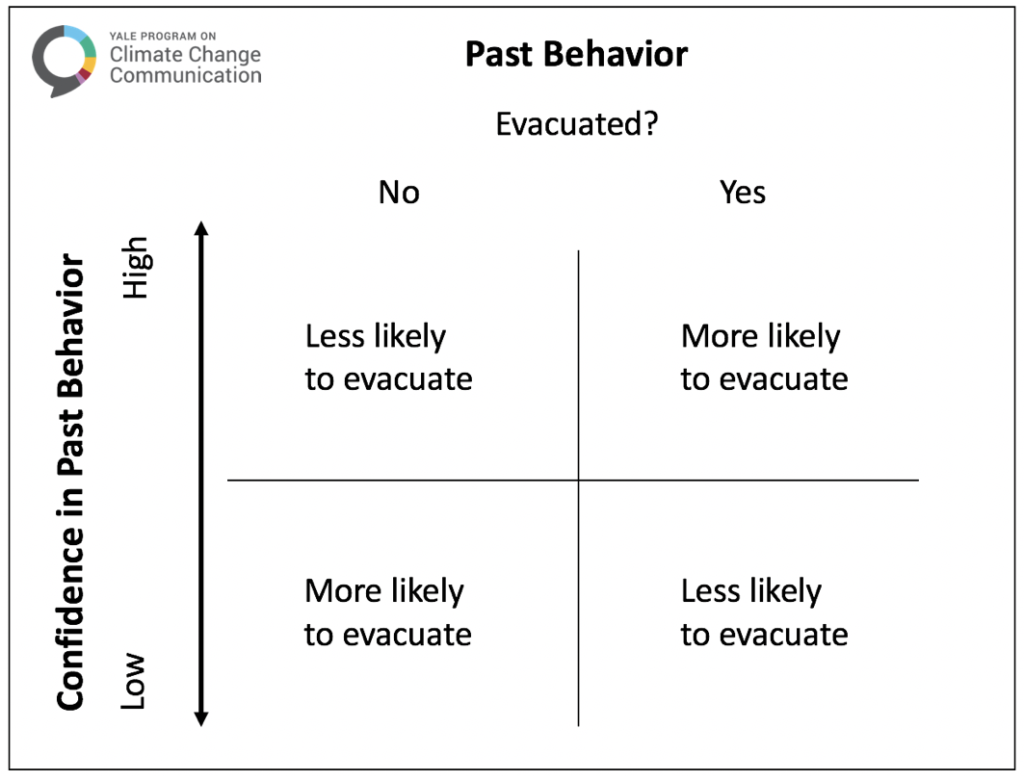Peer-Reviewed Article · Dec 3, 2019
Predicting hurricane evacuation behavior
By Matthew Goldberg, Jennifer Marlon, Seth Rosenthal and Anthony Leiserowitz
Filed under: Behaviors & Actions

We are pleased to announce the publication of a new research article, “A Meta-Cognitive Approach to Predicting Hurricane Evacuation Behavior” in the journal Environmental Communication.
Atlantic hurricanes are becoming larger and stronger as a result of warming ocean temperatures. However, evacuation behavior among the public has not changed accordingly. Emergency managers often find it very difficult to persuade people at risk to evacuate before a hurricane strikes, including many individuals who refuse to evacuate even when given the most dire storm warnings. In this article, we explore the factors associated with hurricane evacuation behavior.
Previous research indicates that individuals’ past experience with hurricanes can have an important influence on their intended evacuation behavior, but the evidence has been inconsistent. In a representative survey of Connecticut coastal residents, we tested the hypothesis that the decision to evacuate is based not only on one’s past decision to evacuate (or not), but also on one’s assessed confidence in that decision. In other words, if someone evacuated for a previous hurricane and had confidence that they made a good decision, they are more likely to plan to evacuate in the future. In contrast, if they did not have confidence in their past decision – perhaps thinking that they had evacuated unnecessarily – they are less likely to plan to evacuate for a future hurricane (see figure below).
We found that this hypothesis was correct. One’s past evacuation decision to evacuate (or not) was a much stronger predictor of future intended evacuation behavior when people had high confidence in their past decision. This was the case across four different storm scenarios.
This research has important implications for public safety communicators. Residents often rely on their past experience when making decisions about whether to evacuate for a coastal storm. Yet, as with the stock market, past results do not guarantee future performance – especially in the context of climate change. Rapidly warming ocean temperatures and rising sea levels are increasing the likelihood of the storm surge and flooding that often accompany hurricanes. These storm impacts are already exceeding the natural range of variability that most people have experienced in their lifetimes. In addition, each storm is unique and weather forecasts, no matter how accurate, always carry uncertainty. As a result, especially when addressing individuals who did not evacuate and were unharmed by previous major storms, communicators may want to emphasize the differences between current storm predictions and past storms. Additional research is needed, however, to confirm whether emphasizing such differences is an effective communication strategy that promotes compliance with evacuation advisories, and if so, which deployment methods are most efficient.
The full article is available here to those with a subscription to Environmental Communication. If you would like to request a copy, please send an email to climatechange@yale.edu, with the subject line: Request Hurricane Evacuation Paper.
This project was supported by the National Oceanic and Atmospheric Administration.
